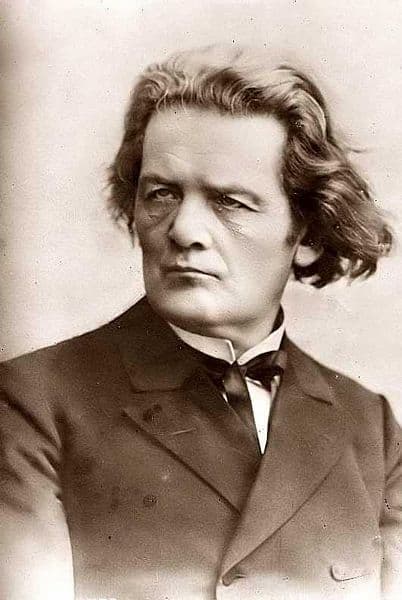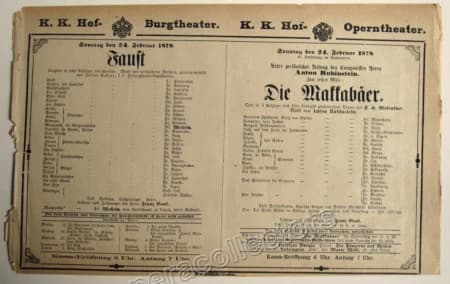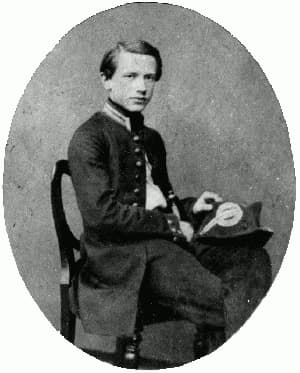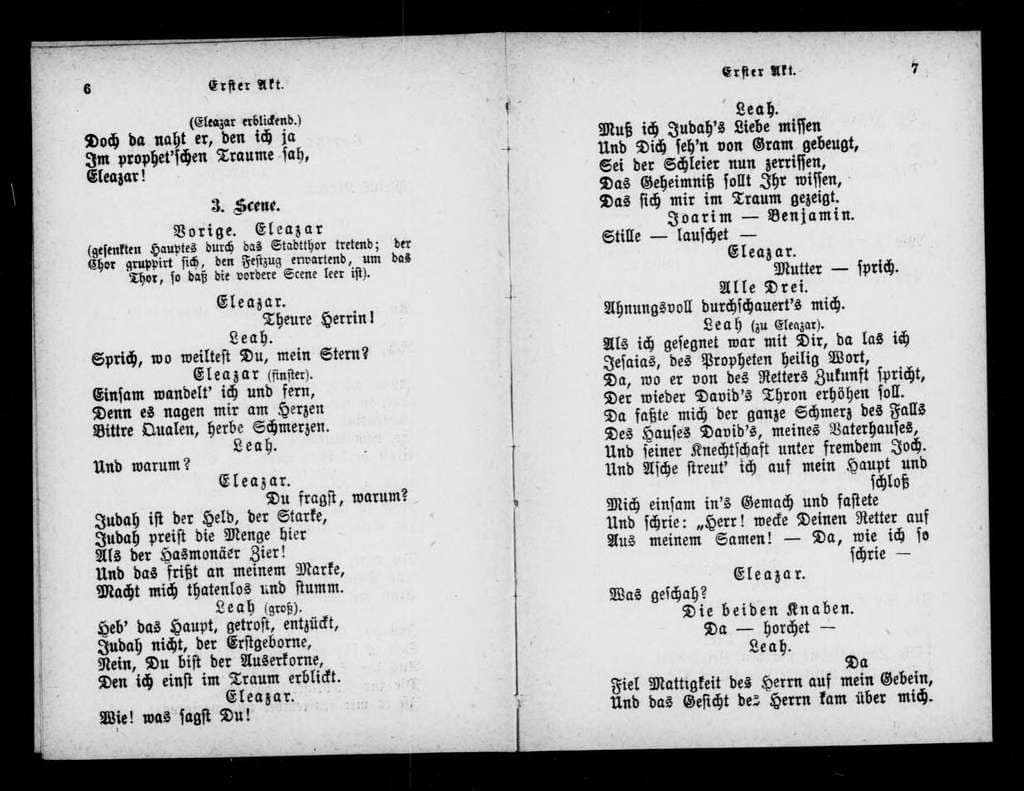The Maccabees, composed in Vienna between 1872-4, was Anton Rubinstein’s (1829-1894) most successful opera. Premiered on 17 April 1875 at the Hofoper in Berlin, reviewers considered opening night the greatest triumph the city had witnessed since L’Africaine ten years before. It quickly became a repertory work on German and Russian stages, and the critic Eduard Hanslick considered it an alternative model for operatic development to the works of Richard Wagner. However, the opera suddenly disappeared with the most recent production given in Hebrew in Jerusalem in 1925.
Anton Rubinstein: Die Maccabaer: Aria: What orders, Lord, do you give Your slave (Maximilian Maksakov, baritone)
The Story

Anton Rubinstein
The widely praised libretto by Salomon Hermann von Mosenthal focuses on the family drama of the Maccabees. Judas (baritone) is the leader of the revolt against the Syrians, and his brother Eleazar (tenor) betrays his people and their mother Leah (contralto) for the love of the Syrian princess Cleopatra (soprano). Against a background of political and religious struggle, the chorus—divided into groups of Israelites, Syrian warriors and priests, and Greek slaves—assumes a leading role.
A musicologist writes, “each act culminates in a huge ensemble with chorus; that in the second act (a victory hymn during which Eleazar’s treason is gradually revealed to fine ironic effect) is based on the melody of a Jewish song the composer learned as a child from his mother.” It certainly is a monumental work, and like his other operas, it was initially subject to censorship in Russia. Censors declared Rubinstein opera “incompatible with the teachings of our church, as it may affect religious feeling in the public.”
Anton Rubinstein: The Demon (Anatoly Lochak, bass; Alison Browner, alto; Marina Mescheriakova, soprano; Leonid Zimnenko, bass; Valeriy Serkin, tenor; Richard Robson, bass; Ludmilla Andrew, mezzo-soprano; Wjacheslav Weinorowski, bass; Wexford Festival Opera Chorus; Ireland National Symphony Orchestra; Alexander Anissimov, cond.)
Censorship

Anton Rubinstein’s opera The Maccabees playbill
Censorship restrictions for Rubinstein’s The Maccabees were gleefully welcomed by Rubinstein’s former student Pyotr Ilyich Tchaikovsky. Once a rumour started circulating that the opera was to be premiered in Russia during the 1876/7 season, Tchaikovsky feared that it would replace his own opera Vakula the Smith.
As Tchaikovsky wrote to his brother Modest, “Tell Anton Rubinstein ‘My brother has instructed me to tell you that you are a son of a bitch, and you can go and stuff your mother.’ No one has wounded my self-esteem as much as this Peterhof resident. And now he comes creeping with his many operas. If it weren’t for the penal code, I would go to Peterhof and happily burn his wretched villa to the ground.”
Anton Rubinstein: Piano Concerto No. 4, Op. 70
Teacher and Student

Tchaikovsky’s graduation in 1859
The animosity between Rubinstein and Tchaikovsky dates back to the founding of the St Petersburg Conservatory in 1862. Tchaikovsky was a student in Rubinstein’s instrumentation classes in the conservatory’s first intake. Rubinstein was unquestionably the greatest pianist besides Franz Liszt, and he knew it. However, as a conductor, he had serious shortcomings, as it was inconceivable to him that members of the orchestra “did not share his natural love for the music.” Rubinstein considered himself a successor of Schubert and Chopin, and he very much disliked Tchaikovsky’s music.
Rubinstein, by all accounts, was always straightforward and outspoken, and he did not conceal his dislike of Tchaikovsky’s music. As Tchaikovsky later wrote, “In my younger days, I very impatiently blazed my way—tried to acquire a name and fame as a composer—and hoped that Rubinstein would help me in my quest for laurels. But I must confess with grief that Anton Rubinstein did nothing, absolutely nothing, to further my desires and projects.”
Pytor Ilyich Tchaikovsky: Six Pieces on a Single Theme, Op. 21, (dedicated A. Rubinstein) (Valentina Lisitsa, piano)
Multiplication of Mediocrities

Anton Rubinstein’s opera The Maccabees libretto
Rubinstein never did “me any harm because he is too high-minded and good-hearted ever to harm a colleague,” Tchaikovsky writes, “but his bearing toward me always remained reserved and benevolently indifferent. The most plausible explanation for this humiliating condescension is a dislike for my music and an antipathy for my musical personality.” To be sure, Rubinstein frequently judged the works of his student rather harshly.
Following his graduation in 1866, it was Rubinstein who recommended Tchaikovsky for the post of professor of harmony at the Moscow Conservatory. Rubinstein, in turn, had created a number of enemies at the conservatory. As he wrote, “in September of 1867, I left the conservatory, as I differed with certain professors in my views upon the very essence and aim of musical instruction.” And he forcefully added, “To avoid the multiplication of mediocrities in musical art, diplomas should be awarded only to those of exceptional talent. In all other cases, certifications should be substituted.”
For more of the best in classical music, sign up for our E-Newsletter
Anton Rubinstein: Piano Quintet in G minor, Op. 99 (Pihtipudas Kvintetti)
